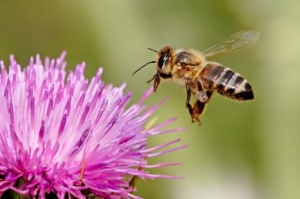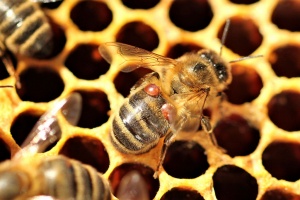In the past years our fellow bees have been dying off at increasingly rapid rates.
Since 2006 beekeepers have been reporting this fact and alerting for the consequences for the human race.
But why’s that? Is the bee community so important that its disappearing could threaten the world as we know it?

Bees are responsible for pollinating which means they represent a significant role in producing the fruits and vegetables that we eat on a daily basis and, eventually, end up taking for granted. In a way our food chain depends on them. Are we aware of their role? I do not think so! This small insect is considered to be one of the main reasons for teh humans development on earth.
Our lives, and the world as a whole, would be a much different place if bees didn’t exist! Therefore their survival needs to be assured!
Albert Einstein once said “Mankind will not survive the honey bees’ disappearance for more than five years.”
Has the time come? Why are the bees dying? But most important… what can we do to reverse this process and save them and ourselves?
For the last 15 years, researchers have been trying to come up with an accurate explanation and an effective strategy to save the bees in order to save us, Humans, from the resulting extinction, but… it hasn’t been easy!
First it was thought that the disappearing of the honey bee population was a result of rough winters, pesticides, disease-bearing parasites or even poor nutrition but, recently, scientists have made an alarming discovery when it comes to this massive die off!
Scientists at the University of Maryland and the US Department of Agriculture have identified pesticides and fungicides contaminating pollen that bees collect to feed their hives. The findings have given scientists and beekeepers a new hope on the bee dying spread! But for now this study is still inconclusive on the mystery of the disappearing bees and it needs further investigation so maybe we should focus on what we can do to help these little insects to survive instead.
In Portugal, according to professor Murilhas, from the University of Évora, the results of a big survey held in 2011, to investigate abnormally high honey bee colony mortality, although stressing pesticide intoxications or thymol application as causes, pointed out several others: “Varroa destructor was flagged by 25% of them as the key problem (…) as well as ‘Poor quality’ queens (mentioned by 13%), colony starvation (indicated by 12%), colonies overwintering in ‘weak conditions’ (pointed out by 11%) and ‘nosemosis’ (suspected by 4%)”.

Varroa Source; https://www.emaze.com/
Globally there are several movements in order to reach out to people, spread the word and raise awareness on the role of bees and the risk we are facing.
For example: the “Bee thinking” project was made popular in the TV show “Shark Tank”, Matt Reed, the entrepreneur, wanted to save the bees so he developed fabricated beehives which he names honeycombs. In these we can take the honey out and eat it, without processing. There are also a few pratical routines we can do to avoid the growth of the die off! Not using pesticides and chemicals in our gardens; keeping weeds around our lawn or plants, contrary to what is thought, can also be a good thing along with the purchase of local raw honey instead of the processed one!
But first of all remember that honey bees won’t hurt you if you don’t attack them! So… try to be rational when it comes to killing these precious beings to our existence!
I is critical to keep bees alive, or else all of the humanity can be at risk of extinction so it is imperative to raise awareness around the world and try to figure out once and for all what is really utterly killing the bees! For now we can do our part and try to reduce this die off while we debate the importance of these long misunderstood forgotten beings!
Personally I didn’t even like bees all that much but finding out their importance and how they may affect our planet made me rethink and change my opinion. Now I hope we can bring the hives back good and well!




You must be logged in to post a comment.